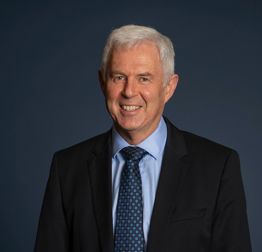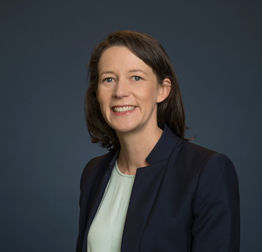The case of Charlie Gard has attracted significant international attention this year, eliciting comments from the European Court of Human Rights, the Pope and even United States' President Donald Trump. At the heart of the controversy is Charlie Gard, a young infant in the UK who suffers from a rare mitochondrial disease (mitochondrial DNA depletion syndrome). On Monday, after being advised of further deterioration in Charlie's condition, Charlie's parents announced they were ending their legal fight to keep their son on artificial ventilation. While this marks the end of the legal battle over the withdrawal of Charlie's treatment, the Court is yet to decide whether to grant the last wish of Charlie's parents to allow their son to go home.
In late 2016, Charlie's parents suggested the option of nucleoside therapy, an experimental treatment, for Charlie. The treatment was considered by Charlie's clinical team but in January 2017 the team reached the sad conclusion that, given the severity of Charlie's condition, the treatment was "incapable of achieving anything positive for him." The team therefore concluded, following consultation with external experts, that continuing artificial ventilation was no longer in Charlie's best interests and proposed to withdraw ventilation and provide palliative care. Charlie's parents however objected to Charlie's treatment being withdrawn, because they believed that he should have the opportunity undergo nucleoside therapy. With Charlie's clinical team and parents at odds about what to do, Charlie's hospital applied to the UK's High Court, asking the Court to make orders that confirmed:
- That Charlie; by reason of his minority, lacks capacity to make decisions regarding his medical treatment
- That it is lawful, and in Charlie's best interests, for artificial ventilation to be withdrawn
- That it is lawful, and in Charlie's best interests, for his treating clinicians to provide him with palliative care only
- That it is lawful, and in Charlie's best interests, not to undergo nucleoside therapy provided always that the measures and treatments adopted are the most compatible with maintaining Charlie's dignity.
As the law requires, the focus for the Court was on what was in Charlie's best interests. As the High Court explained, while a child's parents will usually have the ability to make decisions about their child's medical treatment, that can be overridden if a court believes their decisions are not in accordance with the child's best interests: "[a] child's parents having parental responsibility have the power to give consent for their child to undergo treatment, but overriding control is vested in the court exercising its independent and objective judgment in the child's best interests."
The common view of Charlie's clinical team was that nucleoside therapy would be futile and therefore not in his best interests. After considering the evidence and submissions (including experts for both sides), Mr Justice Francis agreed and granted the orders the hospital sought. In doing so, Mr Justice Francis stated that "[i]t is with the heaviest of hearts but with complete conviction for Charlie's best interests that I find that it is in Charlie's best interests that I accede to these applications and rule that Great Ormond Street Hospital may lawfully withdraw all treatment, save for palliative care, to permit Charlie to die with dignity."
Charlie's parents appealed. The High Court decision was however upheld by the Court of Appeal and permission to appeal to the Supreme Court was declined. Charlie's parents then took the case to the European Court of Human Rights who ultimately endorsed the approach taken by the UK's courts.
Despite all appeals failing, Charlie's case was just this month returned to the High Court to consider further evidence that Charlie's family and others (including other clinicians) had raised regarding the prospects of nucleoside therapy. A neurologist from the USA who had offered to provide nucleoside therapy to Charlie flew into the UK on 17 July to evaluate Charlie and meet his clinical team. Monday's announcement that Charlie's parents would no longer challenge the decision to withdraw treatment came just days before the High Court's final decision had been expected. At the time of writing, the question whether Charlie is allowed to return home is yet to be determined.
In New Zealand…
Although rare, cases dealing with the withdrawal of life-saving treatment have come before the courts in New Zealand. In one of the leading New Zealand cases, decided in 1992, the High Court was required to consider "whether the doctors' action in withdrawing the artificial ventilatory-support system for Mr L would make them guilty of culpable homicide."[1] The Court ultimately made an order which provided that where certain specific conditions are met, "ss 151 and/or 164 of the Crimes Act 1961 will not apply, and the withdrawal of the artificial ventilatory support from Mr L will not constitute culpable homicide for the purposes of that Act."
In reaching this conclusion, the High Court commented that: "[a] doctor acting responsibly and in accordance with good medical practice recognised and approved as such in the medical profession, would not therefore be liable…to any criminal sanction based upon the application of section 151(1). He or she will have acted with lawful excuse."[2] Of course, what amounts to 'good medical practice' in each case is a difficult factual question.
In a slightly different but more recent context, the High Court heard a case where the clinical team sought orders "declaring that the health professionals, acting on the decision of the mother not to reinsert C's PEG tube, will have a lawful excuse for the purposes of ss 151 and 164 of the Crimes Act and those acts and/or omissions will not constitute culpable homicide for the purposes of the Crimes Act 1961."[3] In that case a young boy's (C's) PEG tube, which provided him with hydration and nutrition, had fallen out and would have required surgical intervention to reinsert.
After considering the effect of sections 151 and 164 of the Crimes Act and the evidence presented, Justice Mallon concluded she was "…satisfied on the evidence that it is not in C's best interests to have the operation [to reinsert the PEG tube] and that it would not be in accordance with good medical practice for this to occur." The Court granted the orders sought.
As all of these cases show, decisions about the withdrawal of life-saving treatment are some of the hardest and most controversial decisions made in the health care context. Although recourse to the courts may not always be required, serious and careful consideration of the legal and ethical aspects of a decision to withdraw treatment is always critical and legal advice is recommended. Particular caution will be required in cases where the patient, the family and the clinical team are at odds, or where there is uncertainty about other available treatments. As with many of the decisions that have to be made in health care, close and open communication with the patient (where possible) and the patient's family will also be important.
[1] Auckland Area Health Board v Attorney-General [1993] 1 NZLR 235, at 238. See also Shortland v Northland Health Ltd [1998] 1 NZLR 433 (CA).
[2] Auckland Area Health Board v Attorney-General [1993] 1 NZLR 235, at 253.
[3] Hutt District Health Board v B HC Auckland CIV 2011-485-863 [2011] NZHC 341; [2011] NZFLR 973 (8 May 2011), at [3].








